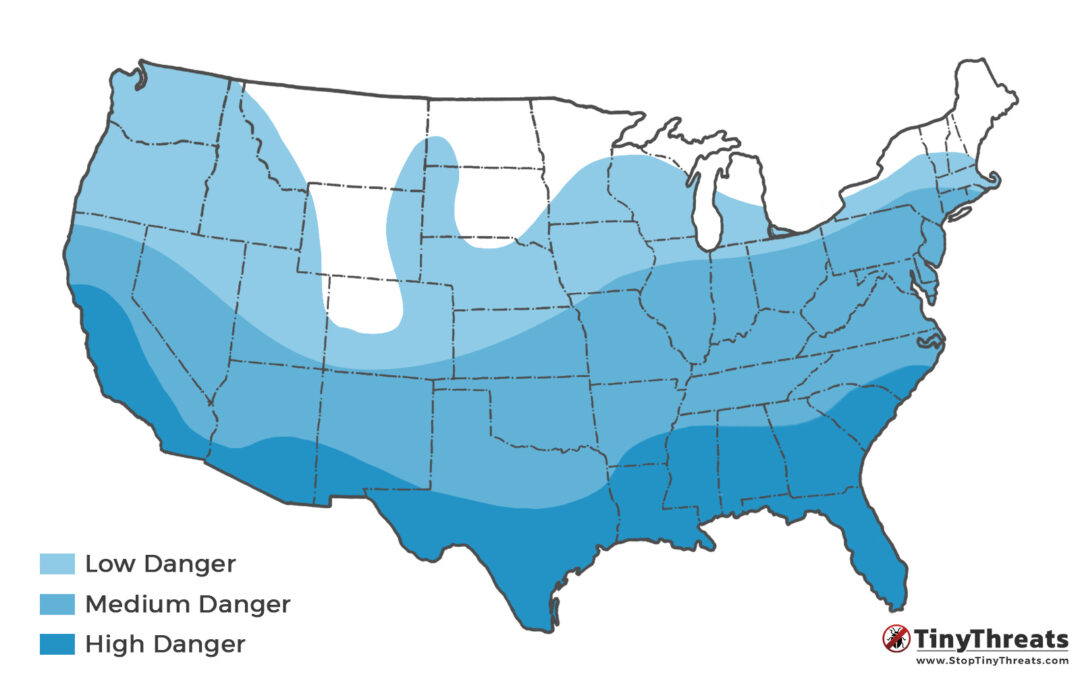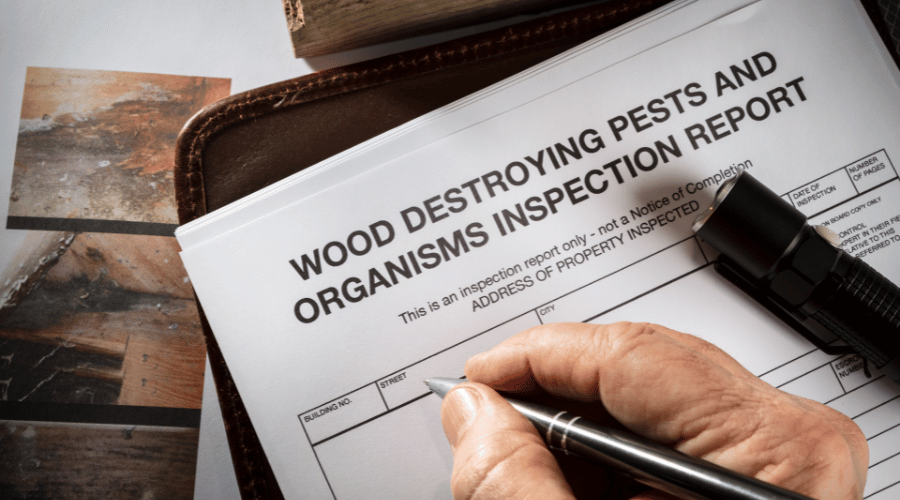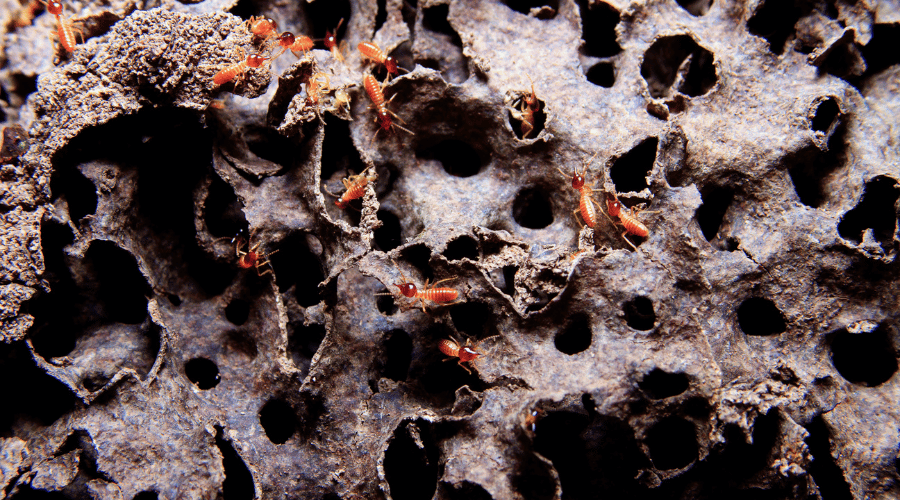Do you own a piece of outdoor furniture made from teak wood and fear that termites may eventually attack it? Maybe you’ve heard some conflicting reports about whether or not teak is vulnerable to these pests. You may even know someone who swears that termites eat teak wood.
Sorting out the facts from myths about this topic can be tricky – but don’t worry, we have you covered!
In this blog post, we will discuss what makes teak so special (or different) in comparison to other kinds of wood when it comes to being resistant to those pesky termites.
Table of Contents
Is Teak termite-resistant?
Teak is known to be one of the most resistant woods to termites, making it a popular choice for outdoor projects such as docks, patios, and decks.
This resistance is due to the fact that teak wood naturally secretes an oily compound that repels termites and other insects. (1)
The development of this feature is attributed to the tropical environment where teak grows, leading many experts to suggest using teak in areas with high termite populations.
Despite its extraordinary resistance it’s still important to practice preventative maintenance and monitored care for any site where teak may be present.
Regular inspection of potential or existing damage can help preserve longevity and maintain the attractive appearance of any structure made with teak lumber.
Is Teak immune to termites?
Many think that termite-resistant wood is immune to termite damage – but it is not. While there are many termite-resistant hardwood options, there is no kind of wood that termites cannot eat.
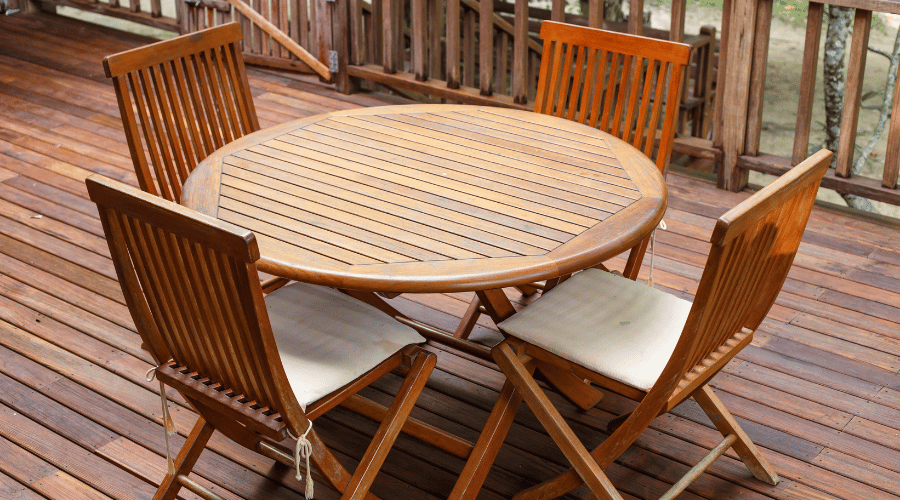
Can Termites eat Teak wood?
With that said, termites can and will eat teak wood if there is nothing else to feed on. They will look for softer, less toxic wood types first, but will eventually attack teak as well.
Additionally, the termite-repelling chemicals in teak will be eroded over the years, especially in outdoor constructions.
Especially below ground, the wood will also decay, making it even more vulnerable.
So don’t think that teak boards are immune to termites – this would be a costly mistake!
Termite Treatment for Teak wood
In addition to its natural resistance, you can apply certain wood treatments to teak lumber to increase its protection against wood-boring insects such as termites. Often, if you buy hardwood lumber, it is already pressure-treated with such chemicals.
If not, you can apply these treatments as a spray or brush it onto the wood all on your own – though this is not as effective as commercial treatments performed with high pressure.
Borates are a common ingredient for these treatment products because it can last for around 10 years in wood and kills termites that eat into it.
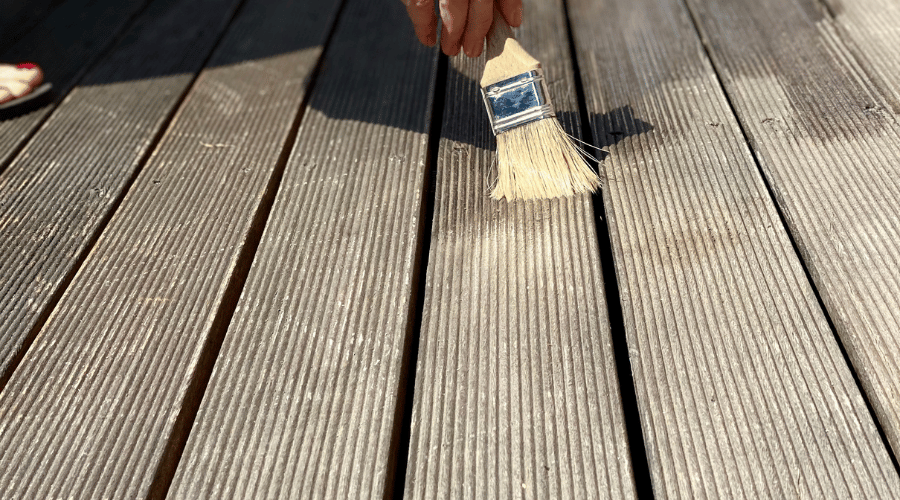
Should you use Teak for construction?
Teak wood is an ideal choice for flooring, walls, decks, and outdoor furniture. It is known for its durability and ability to resist rotting, warping, or splitting in wet climates due to its natural oils.
Additionally, it is relatively low maintenance and doesn’t require frequent painting or staining.
While it is more expensive than other woods due to its strength and durability, the investment in teak wood pays off with a long-lasting product that adds style and value to any property.
In addition to being extremely resistant to the elements and insects, teak wood has a beautiful golden hue that makes it perfect for accentuating both indoor and outdoor spaces with warm tones of color.
What is teak wood?
Teak is a tropical hardwood that can withstand extreme weather conditions and termite damage.
It’s native to South Asia, but it is also grown in other parts of the world, including Central America and Africa.
This type of wood is known for its durability and strength due to its dense grain. It is often used in boat building and outdoor furniture, as well as for flooring.
Conclusion
Teak wood is one of the most termite-resistant woods available, due to the oily compound it secretes.
While termites can and will eat teak if there is nothing else to feed on, this type of wood will last longer than many other options. By routinely inspecting the construction for any current or potential damage, you can help extend its lifespan.
Teak wood is an ideal choice for flooring, walls, decks, and outdoor furniture – making it a popular choice for homeowners and builders alike!

